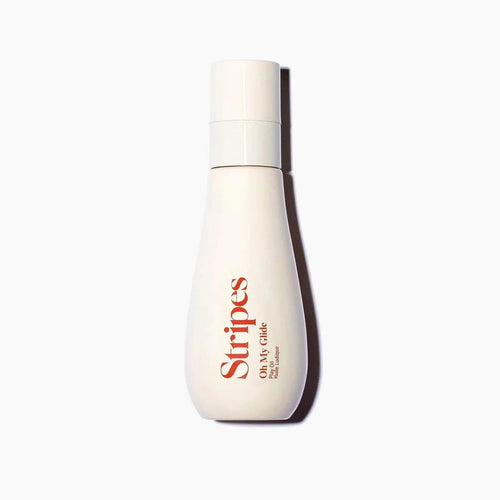All the stressors that come with midlife (and, let’s be honest, life in general) can trigger headaches. One of the main culprits of headaches in your 40s and 50s are the ones that can trigger them during your menstrual cycle or pregnancy: shifting hormones. Clinical studies show that for more than 35 percent of women, headaches get worse during the menopause transition.
Headaches are more common in perimenopause than in menopause. They can range from feeling mild to debilitating and can happen occasionally or every day. Either way, you don’t have to resign yourself to the struggle. Here’s everything you need to know about headaches in (peri)menopause, including how to deal with them.
What causes headaches in menopause?
Your reproductive hormones — namely estrogen and progesterone — don’t just regulate your menstrual cycle. They can also impact chemicals in your brain that can lead to headaches. It’s thought that having consistent estrogen levels in your body can reduce headaches and that estrogen levels in flux can cause or worsen them.
If you’re already prone to hormonal headaches (for example, if you normally get headaches before your period), you might be extra sensitive to these hormonal changes — and your pain might get more severe or frequent during perimenopause. The good news is that your headaches might improve once your periods stop becoming irregular and finally stop, which means your estrogen levels aren’t shifting so drastically.
Stress is another known trigger for headaches, including tension-type headaches and migraines. If you’re overwhelmed by the changes happening during (peri)menopause or experiencing other severe symptoms, your body is probably in a state of chronic stress, and you may be getting more headaches than usual or experiencing headaches for the first time.
How can I stop headaches in menopause?
It can be hard to function when your head is pounding. These simple steps can help prevent headaches or curb them when they hit.
Know your triggers: Whether you’re having migraines for the first time or you’re a headache veteran, understanding what’s causing or worsening your headaches can help you take steps to prevent the pain before it starts.
Keep a notebook or notes on your phone to track potential triggers. Include details like your food, water, and alcohol intake, sleep, stress levels, and caffeine consumption, all of which can affect headaches. If you notice a pattern — you get more headaches when you sleep less, for example, or drink too little water — you can change course.
Keep things consistent: Experts believe headaches stem from hyper-excitability in the brain, which is a fancy way of saying sensitivity to changes. Your hormones are already a roller coaster, so do your best to keep the rest of your routine steady. Eat meals at the same time each day, and try to go to bed, and wake up, at the same hour whenever you can.
Focus on stress reduction: We’ve said it before, we’ll say it again: Stress plays a huge role in peri/menopause symptoms, including headaches. Prioritizing all the healthy practices — extra sleep, exercise, nourishing food, water — can help you feel better. Stress-reducing techniques such as meditation, yoga, deep breathing, and journaling to process your emotions are also extra important when you’re not feeling 100 percent.
Take an over-the-counter medication: Once a headache hits, over-the-counter pain relievers can take the edge off. Non-steroidal anti-inflammatory drugs such as ibuprofen, aspirin, or naproxen are usually helpful; you can also try Excedrin, which contains acetaminophen, aspirin, and caffeine. An ice pack and a dark, quiet room can help you cope, too!
When should I talk to my doctor about headaches during menopause?
If your lifestyle tweaks aren’t helping and your headaches are interfering with your daily function or getting worse, it’s definitely time to check in with a medical expert. After ruling out other potential causes (better safe than sorry), your gynecologist or primary care doctor can recommend a medication to treat your headaches, whether it’s a preventive med or one you take at the onset of pain.
In menopausal women with significant symptoms, hormonal replacement therapy (HRT) is also an option. Some women report worsening headaches using HRT, while the treatment is a huge help for others. Your doctor can help you decide whether HRT is right for you and, if so, which form is most likely to help you feel better and get on with your life.





